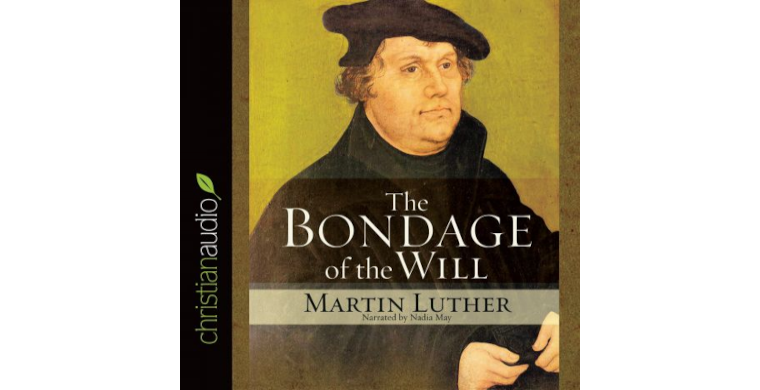"WE DO NOT HAVE FREE WILL" -- Chuck Collins
By Chuck Collins
www.virtueonline.org
September 9, 2023
We do not have free will. I have preached this for thirty years, and I can honestly say that no one accepts it when they first hear it, with the exception of a few people in AA. The idea that our human wills are unfree is repulsive because we want to be free! It's in our veins. But, Paul Tripp (17th century) was right: "the friends of free will are the enemies of free grace." I really believe this. That's why I find overwhelming comfort and encouragement in the understanding of the bondage of the will.
Erasmus perhaps gave us the best definition of "free will" in his famous 16th century debate with Martin Luther: "a power of human will by which a man can apply himself to the things which lead to eternal salvation, or turn away from them." No one is arguing that we have no freedom to raise our right hand and wiggle our fingers, or to select an ice cream flavor. Whether the will is free or unfree is not about determinism (we are not puppets!), but rather it's the question of how we enter the Kingdom of God. Is it our doing, or God's, or a combination of both? Is God the only author of salvation even from the moment we begin to think about God, or is it that "God helps those who help themselves"?
The Bible teaches human helplessness in sin, and the glory and sovereignty of God in grace. Biblical Christianity leads us to have complete and utter confidence in God for salvation from beginning to end, and a wide-eyed skepticism about self-justification and moralistic Christianity. Men and women, apart from grace, are capable of doing nothing but to continue in sin, either by doing wrong things or doing right things for the wrong reasons. The Christian life takes its first breath in us with the words, "Help me!" Our sinful nature has so imprisoned our wills that our only hope is God. It's not that we are drowning; we've drowned! God, God alone, can raise a person from death. Either we are "dead in our trespasses and sins" (Ephesians 2) or just mostly dead. (Miracle Max, in The Princess Bride, said: "Mostly dead is slightly alive. With all dead, well, with all dead there's usually only one thing you can do." Inigo Montoya then asked, "What's that?" Miracle Max said, "Go through his clothes and look for loose change!")
There are biblical passages cited by free-willers, to be sure: "To all who receive him, who believe in his name, he gave the right to become children of God" (John 3), and "If you confess with your mouth that Jesus is Lord and believe in your heart that God raised him from the dead, you will be saved" (Romans 10). But looking closer at the context of all of those passages will reveal what Steve Brown says: We take a step towards God, followed by him taking a step towards us, only to discover that he took the first step towards us to begin with. We love God because he first loved us, and never the other way around.
So, why is this such a big deal - such good news? Because flexing our will-muscles in an attempt to reach up to God always leads to despair and frustration. If you are on the treadmill of performance today, perhaps you are beginning to see that it can never do more for salvation than to show you your need. Good works never even approach the standard God sets for holiness. But God catches us in the net of his love that doesn't require anything of us but our need for him. We are absolutely impotent to cure ourselves. God alone fulfills the Law and Prophets, and completely frees us from sin and death, and makes us new creations. His death and resurrection does not inaugurate a self-help program, but it is God reaching into our helplessness to bring us to life. Our sin nature can't be repaired or patched up by a determined will.
The Anglican Articles of Religion includes this important doctrine of the bondage of the will: "The condition of Man after the fall is such, that he cannot turn and prepare himself, by his own natural strength and good works, to faith, and calling upon God" (Article X). Humans are hopeless and helpless in sin, bound in selfish prison, and deaf to the things of the Spirit. But God will not let go of us. If our wills are free or mostly free or even 10% free, we don't need a Savior: we need a coach to cheer us on. But because sin is utterly sinful, God is able to save us to the uttermost! The bondage of the will is good news, indeed, because God's grace is so great! Sent from my iPad














